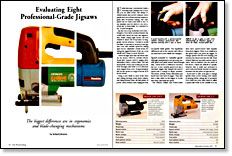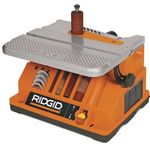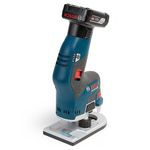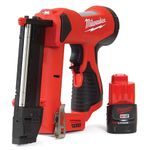All About Jigsaws

Jigsaws are versatile, maneuverable power tools that can make both straight and curved cuts. Like a bandsaw, a jigsaw makes a saw kerf square to the face of the work piece, making it useful for cutting notches where you don’t want the over-cut you’d see with a circular saw. Jigsaws also can make plunge cuts to start a hole in the middle of a surface — as in cutting out a countertop for a sink, for example.
What Counts:
• Handle design
• Corded or cordless
• Tool ergonomics
• Location and style of speed control and on/off switch
• Blade guide system
• Smoothness of operation
Choose from two body styles
There are two basic designs: barrel grip and top handle. Both have ardent proponents. A barrel-gripped model is grasped around the body of the tool and pushed through a cut. Slide-type on-off switches and rear-mounted speed controls on these saws may not be convenient for everyone.
Top-handle jigsaws have on-off switches within easy reach, making it easy to turn the saw off quickly, and some incorporate speed controls with the power switch. A variable-speed feature makes it easy to regulate the speed of the cut. It’s probably a good idea to handle both types of saw before choosing one to get a feel for how the tool’s ergonomics suit you.
Look for versatility and easy blade change
Saws that offer tool-free blade changes are more convenient than older designs that require an Allen wrench or other key that can easily be lost. Manufacturers have come up with a variety of approaches, some better than others. Another important feature is orbital cutting, a feature available on most jigsaws. As the name suggests, this turns the straight up-down stroke of the blade into an orbital motion. The more pronounced the orbital setting, the greater the cutting speed but the rougher the cut. Having several settings makes the saw more versatile.
Vibration remains a key consideration. A jigsaw that jumps around is harder to control and won’t make as smooth a cut as one that transfers power smoothly.
Cordless jigsaws also are available, with battery sizes ranging all the way up to 24 volts. Getting rid of the power cord makes these saws much more convenient to use, but the trade-off is higher cost. Professional-quality corded jigsaws are available for about $150, but even a 14.4 volt cordless version costs more than $225.
Fine Woodworking Recommended Products

Ridgid EB4424 Oscillating Spindle/Belt Sander

Bosch 12V Trim Router

Milwaukee M12 23-Gauge Cordless Pin Nailer




















Log in or create an account to post a comment.
Sign up Log in